January 19 2016 Employee engagement is not a fad. Hotel companies need smart people strategies to perform at their peak. By Michele Sarkisian HNN columnist Michele.sarkisian@p3advisors.biz Given that hospitality employs one in 11 people in the United States, the topic of employee engagement is certainly relevant to the industry. Travel choices, whether business or leisure, are often discretionary and subjective. If the realized experience does not match or beat expectations, the customer may choose differently in the future. Efforts of employees affect every stage of the customer experience: researching choices, booking options, the trip and returning home. When employees are engaged and aligned with their employers’ brand and service orientation, everyone wins. Employee engagement is not a fad. Companies in all industries need smart people strategies to perform optimally. As the industry performs at record levels, customer experience can stand out through one of your best differentiators: your people. Hotels are full of people, including new travelers forming first impressions and local patrons who can become regulars. An employee’s kind conversation with a guest’s child, repairing a leaky faucet with a smile and declining a tip, surprising a guest with a milestone celebration treat, flexing the early check-out fee for a guest’s personal circumstance, genuinely welcoming local customers, etc., separates one hotel from another. But employees cannot deliver such warmth if they do not have the working climate, resources and support to do so. According to Harvard’s service-profit chain, employees appreciate the same things customers appreciate. Take good care of employees and they, in turn, will take good care of guests. Employees treated with respect will treat customers with respect. Trust your employees to do their part (including leadership) and grow personally and professionally as we work. On the corporate level As with any business strategy, employee engagement must start at the top. Trust in leaders varies for good reasons. While words matter, we watch for authenticity in actions. If a leader professes the customer is king but does not empower the employee to handle even simple customer requests, the employee is conflicted when trying to serve. Corporate values are more important to employees and customers than they have ever been. People can recite what some companies stand for and will pay a premium if the issue matters personally. For example, many travelers will not stay (and employees will not work) in hotels that have not signed “the code” because they feel strongly about the prevention of child trafficking. People enjoy participating in positive social impact. Some company experiments to improve engagement are ill-founded. One organization is moving its headquarters less than 15 miles to better attract and retain talent. Several companies have high involuntary turnover despite having rich incentive programs. Employees might stay to attain a tangible incentive but then quickly exit because they do not feel aligned and connected. A more effective and efficient “employer of choice” strategy would include enabling community and collaboration in the workplace. The greatest mistake is simply not being intentional about culture. And while some believe millennials have caused today’s concern over engagement, I do not see vast differences between generations among employees or customers. Our collective experience bar rises continuously. We share our experiences as employees (e.g. Glassdoor) and as customers (e.g. TripAdvisor, Facebook, Instagram). Great companies do not waste much time on generational differences but rather facilitate employee communities and activities around personal and professional interests while reinforcing alignment. Facing the challenges Hospitality faces ongoing workforce challenges, including unions, dual employment, flextime, health care, cultural differences and more. Challenges have costs, so knowing what matters to your workforce helps sort out where to invest. For example, I know a hospitality contact center focused on customer experience and on reducing agent stress. Employees are recognized for customer satisfaction as well as bottom-line metrics (conversions, credit card transfers, loyalty program enrollments, etc.). Companies pay employees competitively, provide an amenity-laden workplace and offer free hotel stay perks, which are fairly standard industry offerings. However, they also watched the agent role expand with every new corporate imperative, promotion, acquisition, brand extension and booking channel. Leadership pulled together agents who helped co-create a unified agent desktop to make agent roles more intuitive and customer-centric. It will reduce average call time and will improve agent confidence and well-being. Invest in what matters, confident that taking care of employees pays dividends.
Minimum wages are increasing for the least skilled and largest portion of our workforce, making profitable growth an ongoing conundrum. We know we need to improve and keep up rates, but we cannot justify higher rates without a corresponding experience customers rave about. We must grow employee skills in serving customers. Additionally, we can educate employees on personal implications of regulations and legislation. Employees trust employers who educate them in meaningful ways. Leaders want to understand their workforce environment. Most gauge satisfaction through annual surveys that provide a snapshot but offer little guidance on what to do to improve. There is value in augmenting annual surveys with periodic “pulse checks.” Employee engagement matters in hospitality, possibly more than any other industry. The customer experience is truly a product of the employee experience. Treat it as such and all will win. Michele Sarkisian is an expert in growth strategy and execution focused on aligning Purpose, People and Profit (P3). She has 30 years of experience helping senior executives design and execute growth strategies to capture market share, improve customer experience and loyalty and engage employees. Clients include global hospitality brands, CPG companies, telecommunications, business services, retailers, leading financial services organizations and more. Michele serves on for profit, start-up and philanthropic boards/advisory boards. She is active in the Prevention of Human Trafficking, focused on assisting the hospitality industry in making a difference. The opinions expressed in this column do not necessarily reflect the opinions of Hotel News Now or its parent company, STR and its affiliated companies. Columnists published on this site are given the freedom to express views that may be controversial, but our goal is to provoke thought and constructive discussion within our reader community. Please feel free to comment or contact an editor with any questions or concerns.
Articles and PublicationsJanuary 19, 2016

